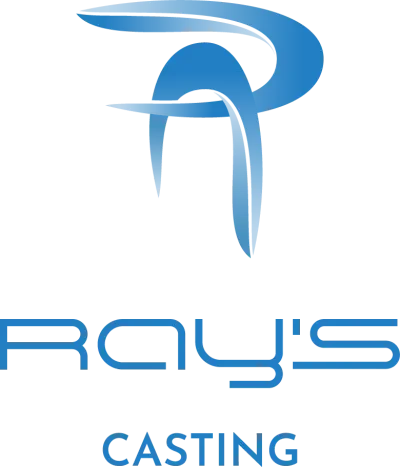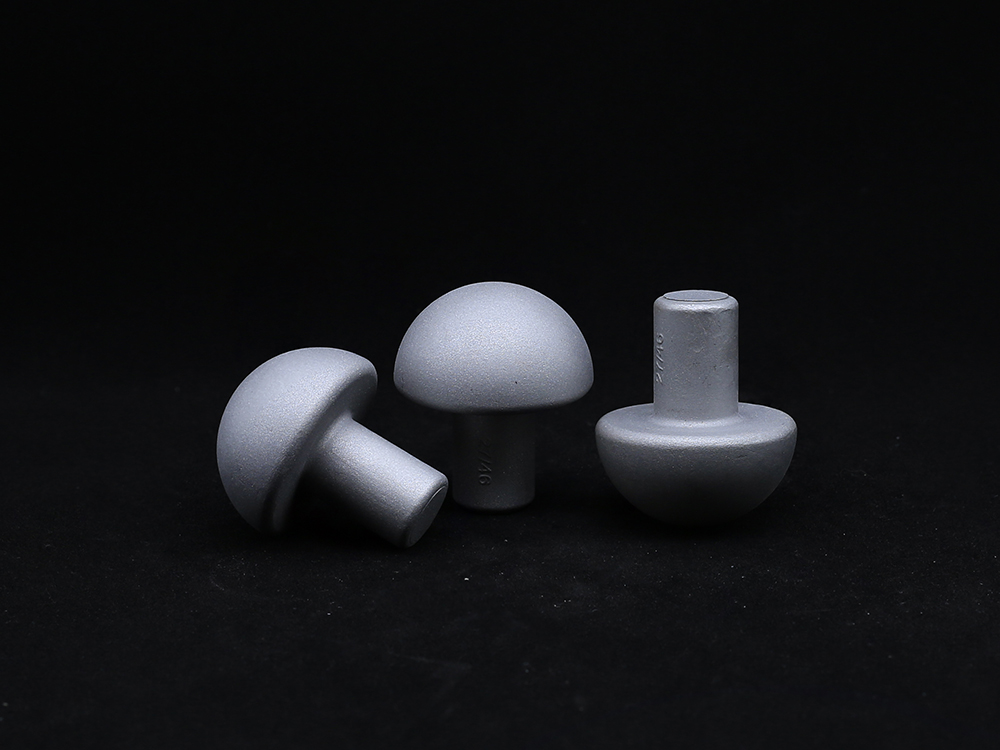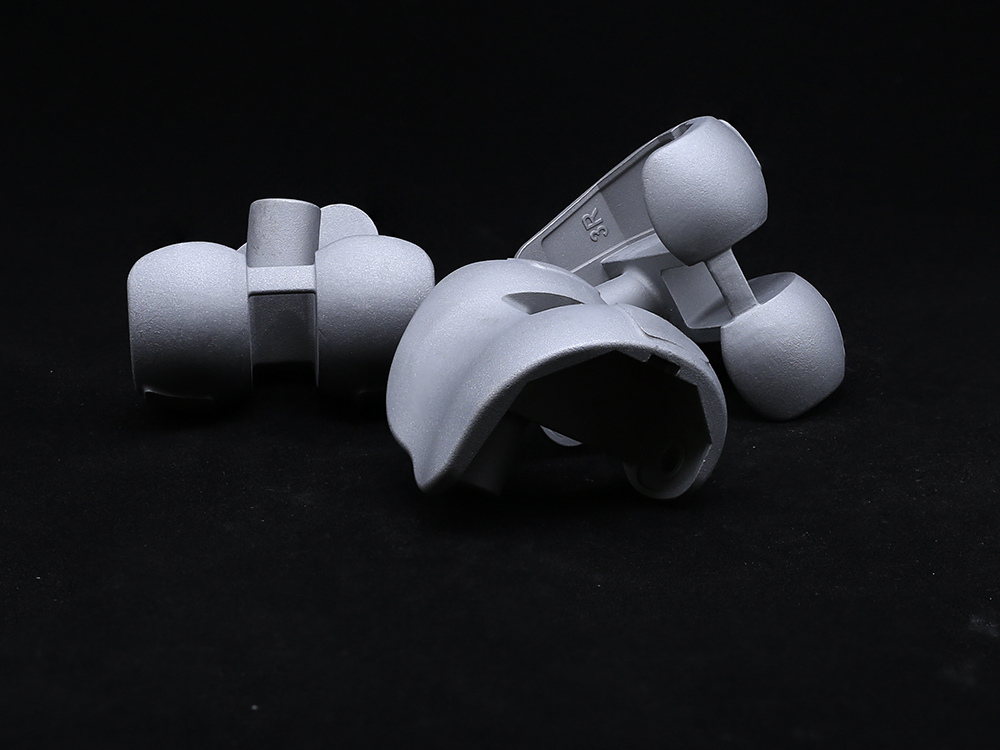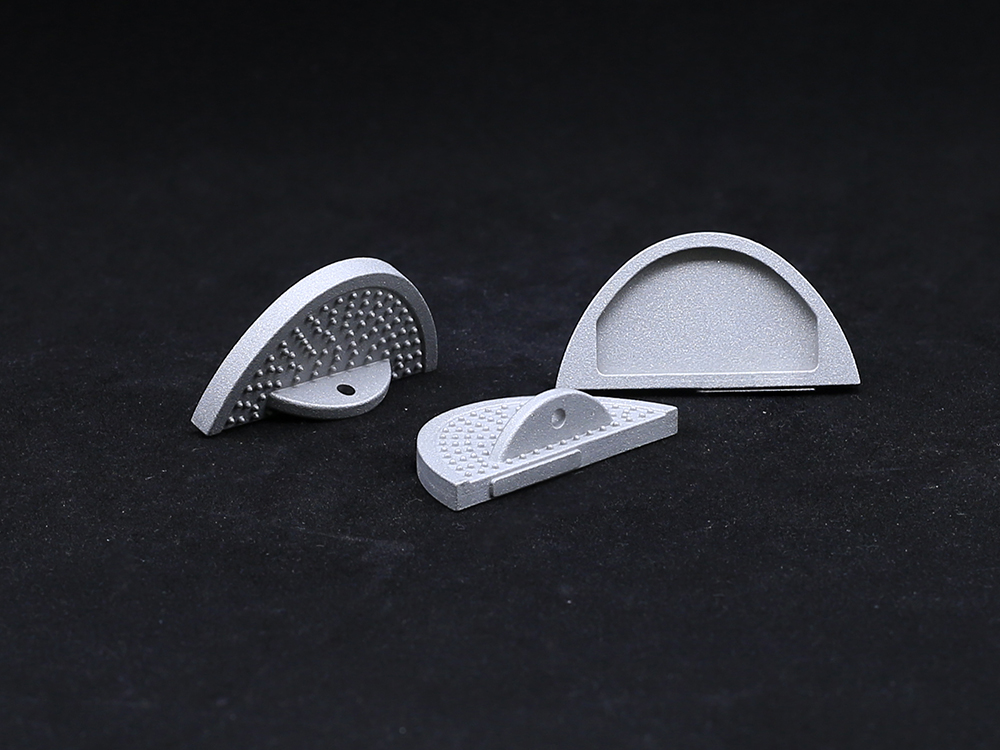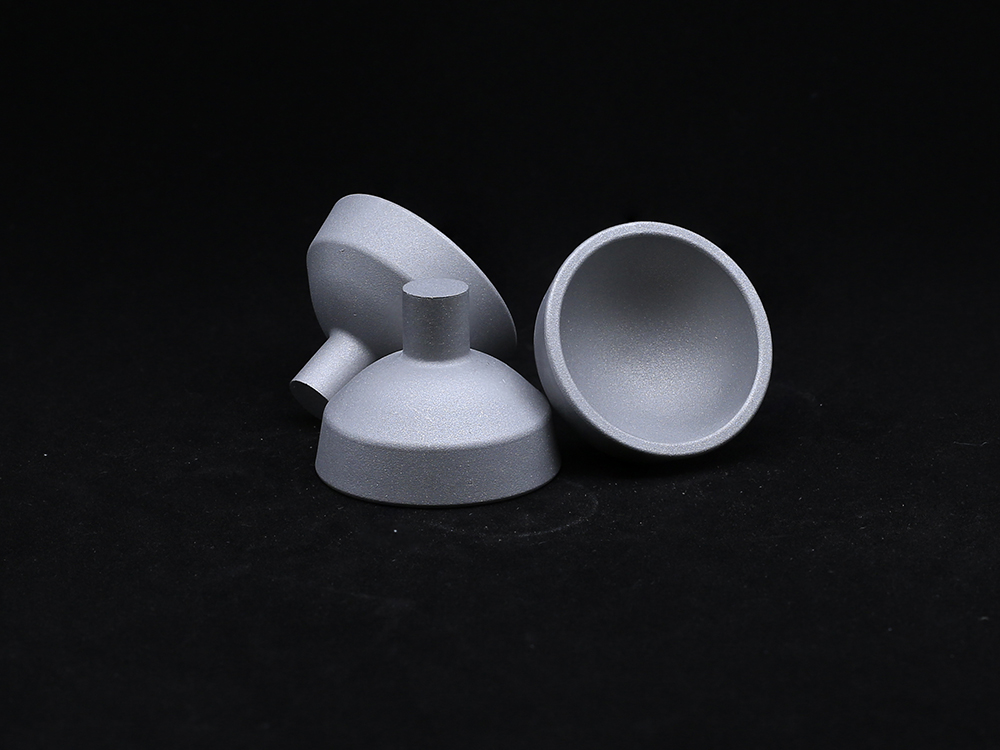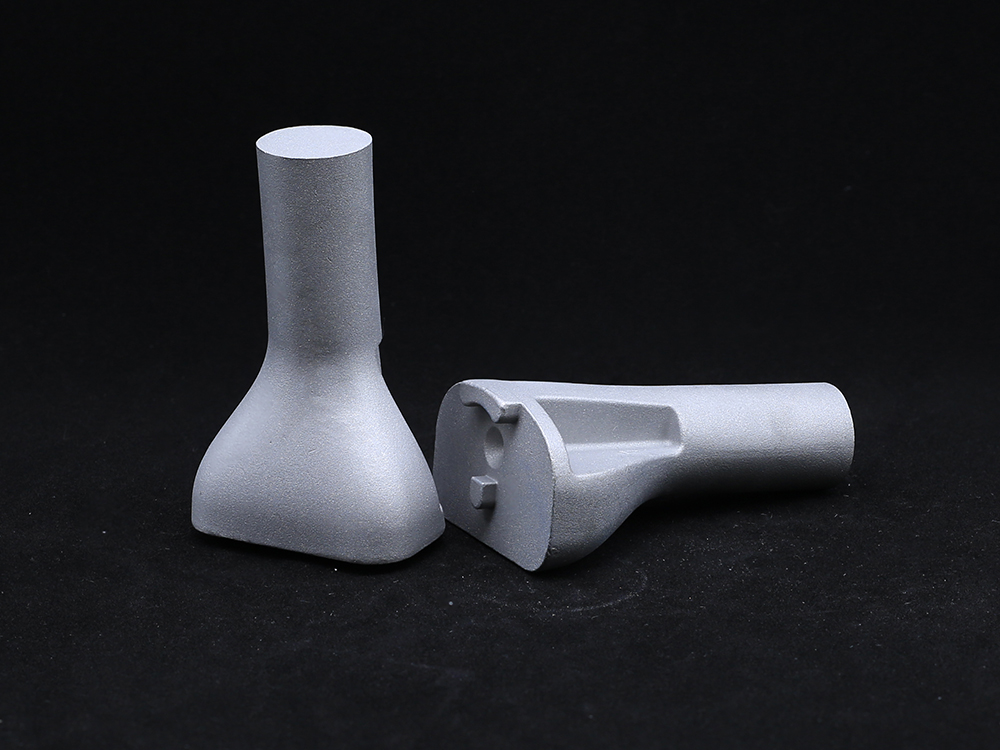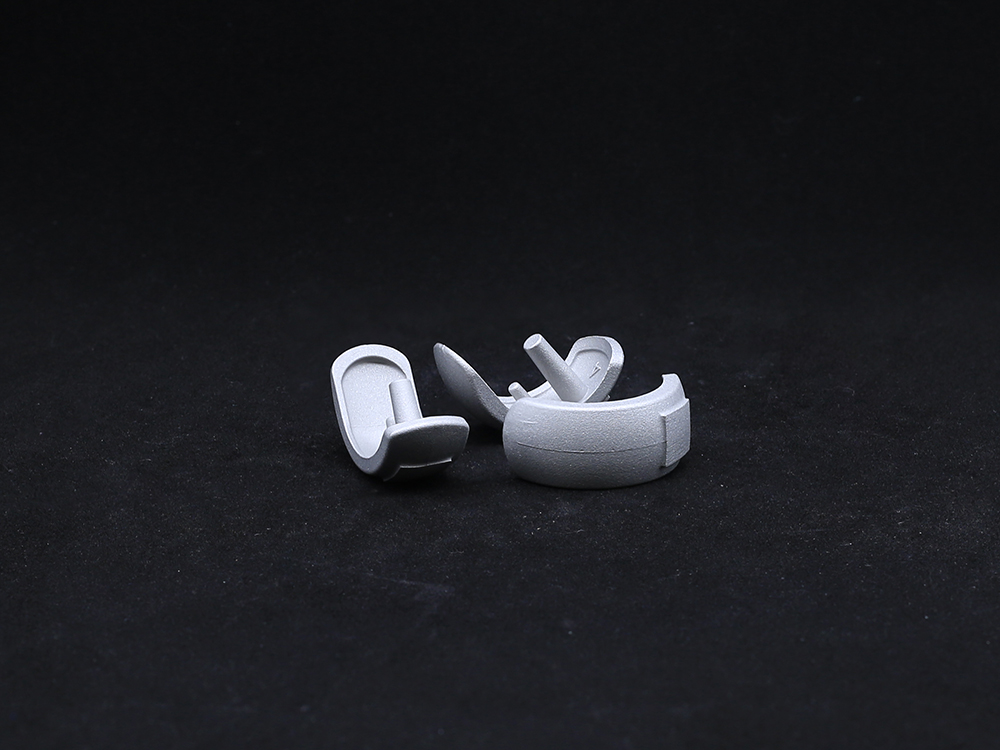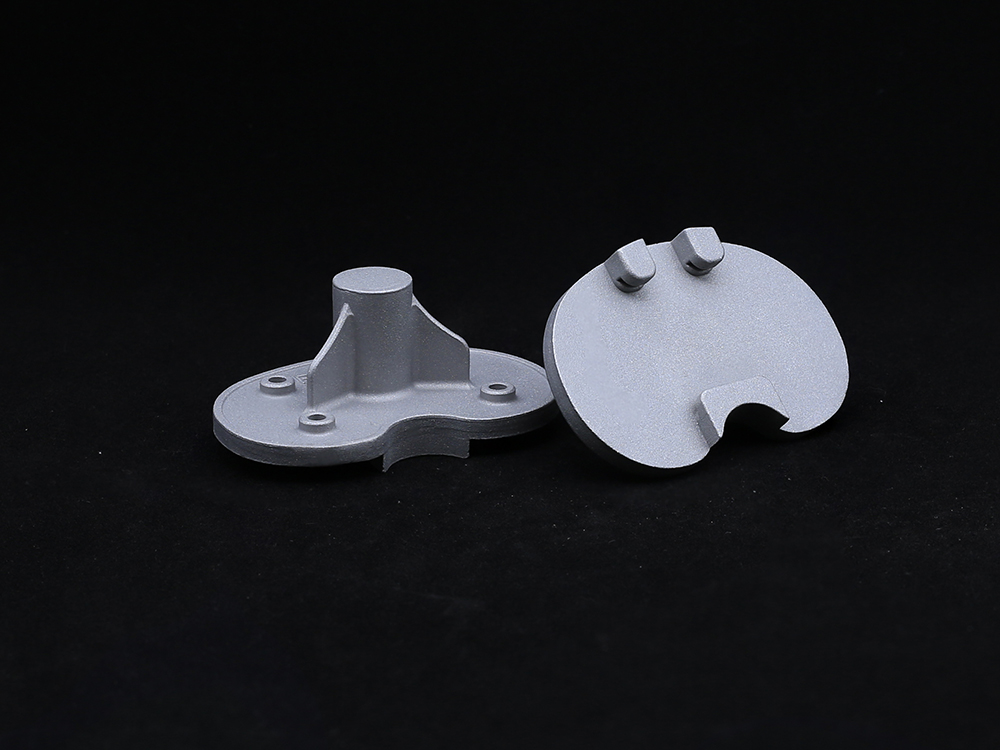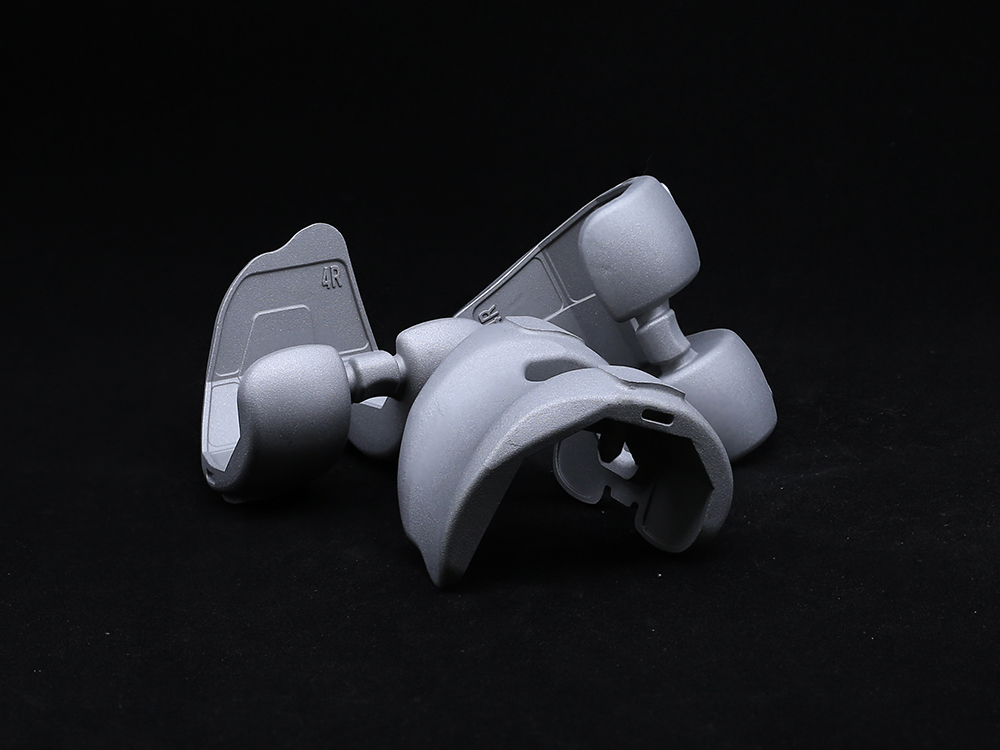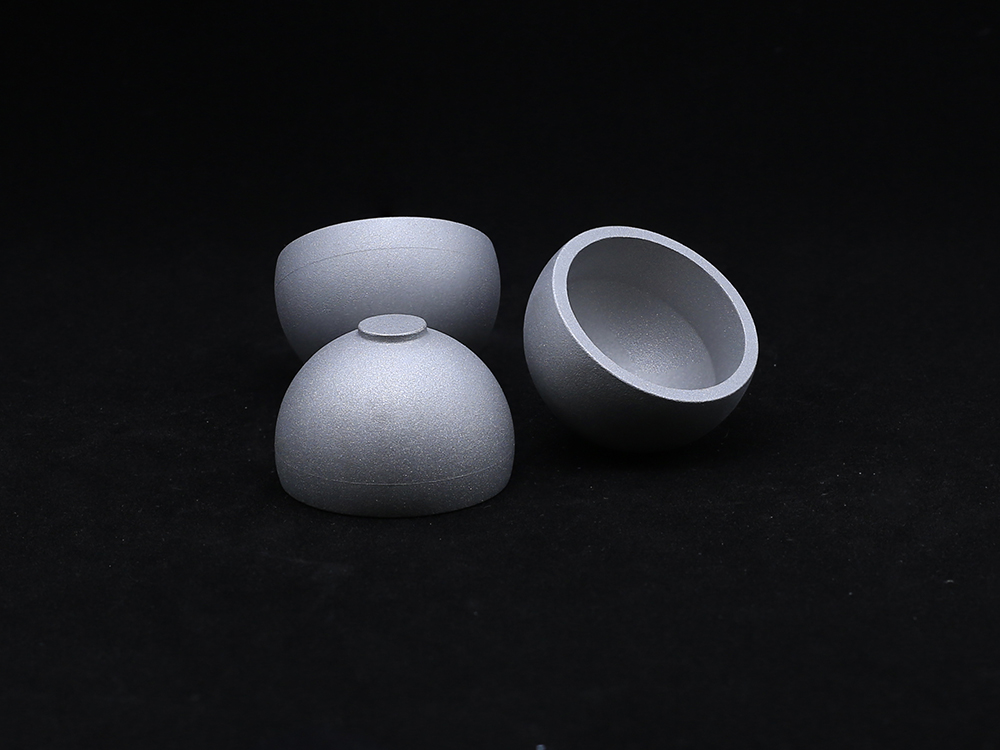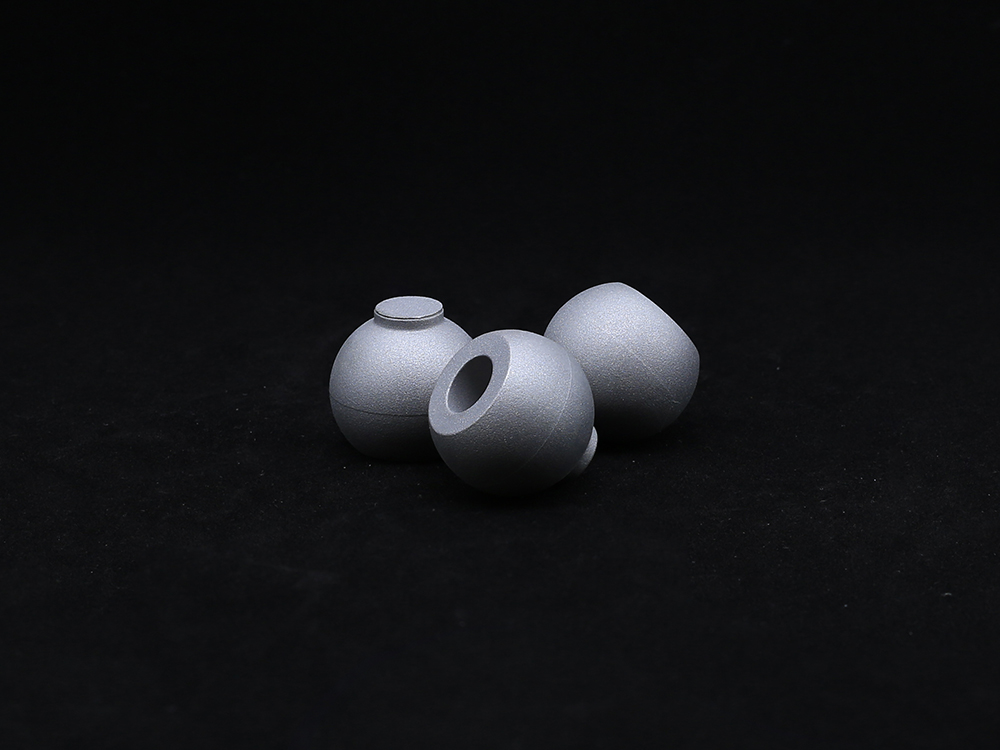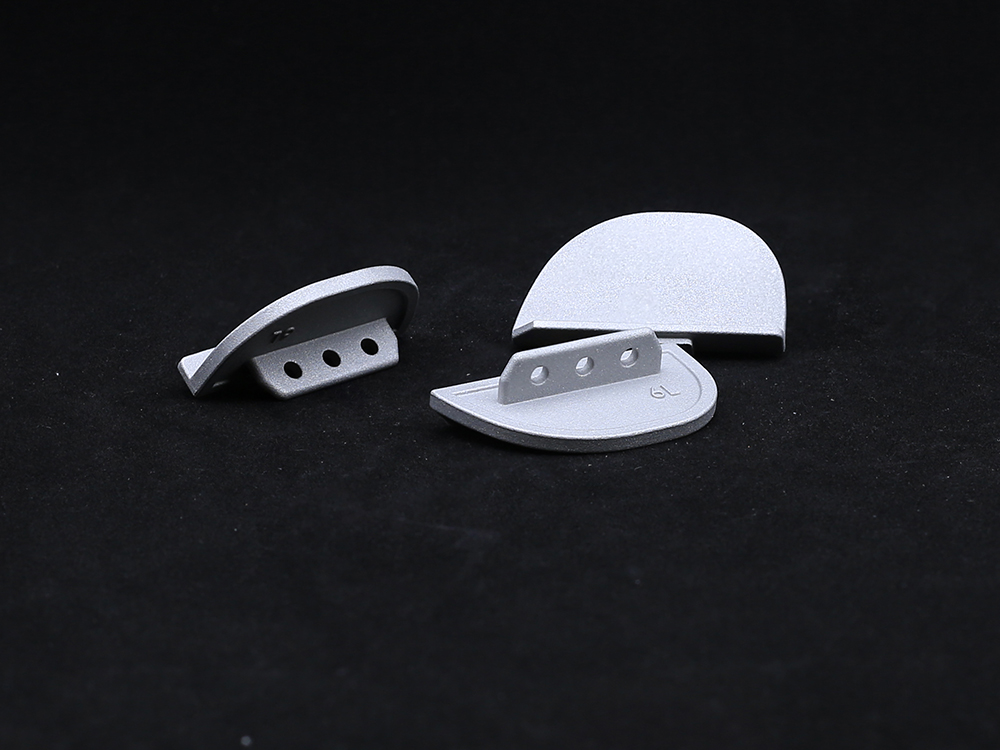- Tel: +8613911709825 /
- Email: ry@rays-casting.com /
Talus Solutions: Enhanced Stability & Performance for Demanding Use
Unveiling Talus: A Leap in High-Performance Industrial Components
In today's rapidly evolving industrial landscape, the demand for components that can withstand extreme conditions while ensuring operational efficiency and longevity has never been more critical. Industries such as petrochemical, power generation, oil & gas, and metallurgy are constantly pushing the boundaries of material science and manufacturing precision to secure reliable infrastructure. This continuous pursuit of excellence drives innovation in specialized parts, necessitating solutions that offer superior resistance to corrosion, high temperatures, intense pressures, and abrasive environments. Traditional manufacturing methods often fall short in delivering the intricate geometries, metallurgical integrity, and dimensional accuracy required for such demanding applications, leading to frequent downtimes, increased maintenance costs, and compromised safety. The industry trend is clearly shifting towards advanced materials and highly specialized fabrication techniques that guarantee enhanced performance and extended service life, thereby reducing total cost of ownership (TCO) and improving overall system reliability. This shift underpins the necessity for cutting-edge components designed to meet these rigorous demands.
Against this backdrop, the introduction of Talus marks a significant advancement in high-performance industrial components. Engineered to address the multifaceted challenges faced by critical infrastructure, Talus represents the pinnacle of precision manufacturing and material innovation. Unlike conventional components, Talus is not merely a replacement but a strategic upgrade designed to optimize system performance across a spectrum of arduous operating conditions. Its development is rooted in extensive research and development, focusing on metallurgical composition, structural integrity, and long-term durability. By incorporating advanced alloys and employing state-of-the-art manufacturing processes, Talus is set to redefine expectations for reliability, efficiency, and safety in industrial applications. This comprehensive approach ensures that each Talus component delivers unparalleled performance, contributing significantly to operational continuity and cost-effectiveness in even the most challenging environments, making it an indispensable asset for forward-thinking industrial enterprises seeking to maximize their operational uptime and minimize unforeseen expenditures associated with component failures.
The Rigorous Manufacturing Process Behind Talus Components
The creation of every Talus component is a testament to precision engineering and stringent quality control, adhering to internationally recognized standards such as ISO 9001 and ANSI specifications where applicable. The process begins with meticulous material selection, opting for specialized alloys like Super Duplex Stainless Steels (e.g., UNS S32750), Hastelloy (e.g., C-276), or custom high-nickel alloys, chosen specifically for their superior corrosion resistance, high-temperature strength, and mechanical properties. This selection is crucial for the intended application, ensuring the component can withstand corrosive media, extreme temperatures, and high-pressure differentials encountered in environments such as desalinization plants, chemical processing facilities, and high-pressure steam systems. Following material approval, the manufacturing sequence typically involves advanced casting or forging techniques. For intricate geometries or larger components, investment casting or sand casting might be employed, ensuring minimal material waste and excellent surface finish. Alternatively, for components requiring superior grain structure and mechanical strength, precision forging processes are utilized to enhance fatigue resistance and toughness.
Post-forming, each Talus part undergoes intensive CNC machining, utilizing multi-axis machines to achieve the precise dimensional tolerances and surface finishes required for optimal performance and integration within complex systems. This phase ensures that every bore, thread, and sealing surface meets exact specifications, minimizing leakage points and maximizing operational efficiency. Heat treatment is then applied, tailored to the specific alloy, to optimize metallurgical properties, relieve internal stresses, and enhance hardness or ductility as needed. The final and arguably most critical stage is the comprehensive quality inspection. This involves a multi-layered approach, including Non-Destructive Testing (NDT) methods such as ultrasonic testing (UT), radiographic testing (RT), magnetic particle testing (MPT), and dye penetrant inspection (DPI) to detect any subsurface or surface flaws. Additionally, Positive Material Identification (PMI) is conducted to verify alloy composition, ensuring that the selected material aligns perfectly with the specified requirements. Hydrostatic testing and pneumatic testing are performed on finished components to validate pressure integrity and leak-tightness. These rigorous checks guarantee that every Talus component leaving the facility not only meets but exceeds industry standards, promising an exceptional service life typically ranging from 20 to 30 years, depending on the specific operating conditions and maintenance schedules.
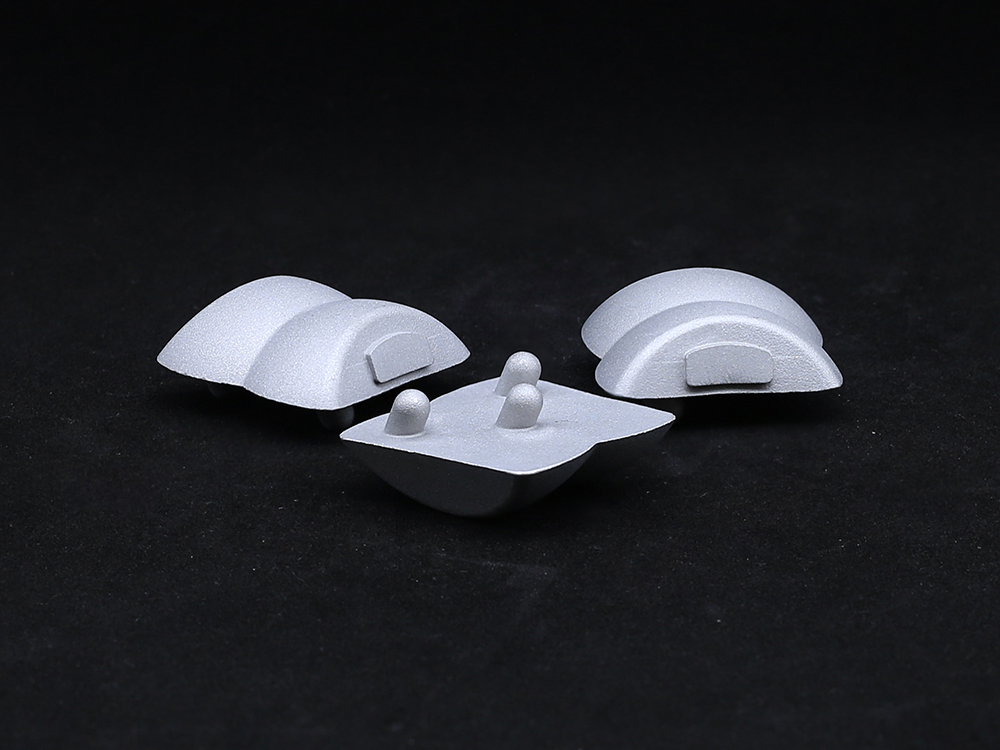
Technical Specifications and Performance Parameters of Talus Components
The robust design and meticulous manufacturing of Talus components translate directly into superior technical specifications and unparalleled performance parameters, making them ideal for critical industrial applications. Our standard product range covers a wide array of configurations, from specialized valve bodies and impellers to structural supports and custom fittings, each designed to optimize specific functionalities within a system. For instance, a typical Talus component designed for high-pressure, high-temperature fluid handling might feature material compositions such as ASTM A995 Grade 5A (Super Duplex Stainless Steel) or ASTM B574 UNS N10276 (Hastelloy C-276), ensuring exceptional resistance to pitting corrosion, crevice corrosion, and stress corrosion cracking in aggressive chemical environments. The tensile strength of these materials typically exceeds 750 MPa (109 ksi) for Super Duplex and 690 MPa (100 ksi) for Hastelloy, providing robust mechanical integrity under extreme loads.
Operating temperature ranges for Talus components can vary significantly based on material and design, with common specifications accommodating environments from -40°C to 450°C (-40°F to 842°F) for general industrial use, and up to 600°C (1112°F) for specialized high-temperature applications. Pressure ratings are equally impressive, with standard designs capable of handling up to PN420 (Class 2500) and custom solutions extending to PN690 (Class 4500) in accordance with ASME B16.34 and API 6A standards, ensuring leak-free performance even under extreme system pressures. Surface finishes are typically specified to Ra 3.2 µm (125 microinches) or finer, critical for minimizing friction and maximizing sealing efficiency. Dimensional tolerances are maintained according to ISO 2768-1 fine, crucial for precise fitment and interchangeability. The table below outlines representative technical parameters, showcasing the capability of Talus to meet and exceed demanding industrial requirements, highlighting the flexibility and robustness inherent in every component's design and fabrication, positioning them as a premium choice for long-term operational reliability.
Representative Technical Specifications of Talus Components
| Parameter | Typical Range / Value | Relevant Standard / Notes |
|---|---|---|
| Material Alloys | Super Duplex SS (UNS S32750), Hastelloy C-276, Inconel 625, Monel 400 | ASTM A995, ASTM B574, ASTM B446 |
| Tensile Strength | 690 - 850 MPa (100 - 123 ksi) | ASTM E8 (Typical, varies by alloy) |
| Yield Strength | 480 - 620 MPa (70 - 90 ksi) | ASTM E8 (Typical, varies by alloy) |
| Hardness | 220 - 300 HB (Brinell Hardness) | ASTM E10 (Typical) |
| Operating Temperature Range | -40°C to 600°C (-40°F to 1112°F) | Dependent on specific alloy and application |
| Max Pressure Rating | PN420 (Class 2500) to PN690 (Class 4500) | ASME B16.34, API 6A |
| Corrosion Resistance | Excellent against pitting, crevice, stress corrosion cracking | NACE MR0175 / ISO 15156 compliant for specific alloys |
| Typical Lifespan | 20-30+ Years (Subject to operating conditions & maintenance) | Based on typical industrial application cycles |
Key Advantages and Diverse Application Scenarios of Talus
The inherent design and material superiority of Talus components deliver a multitude of key advantages across various industrial applications, translating directly into tangible benefits for operators. One primary advantage is their exceptional resistance to corrosion, a critical factor in industries dealing with aggressive chemicals, saltwater, or high-humidity environments. This translates to significantly reduced material degradation, longer service intervals, and lower replacement costs compared to standard alloys. Furthermore, the robust mechanical properties of Talus, including high tensile and yield strength, enable it to withstand extreme pressures and thermal cycling without compromising structural integrity, thereby minimizing the risk of catastrophic failure in high-stress applications. This enhanced durability leads to a remarkable extension of operational lifespan, far surpassing that of conventional components, ultimately contributing to a lower total cost of ownership (TCO) over the asset's lifecycle due to fewer replacements and less unscheduled downtime.
Moreover, the precision manufacturing processes employed for Talus ensure optimal flow characteristics and minimal energy loss. In valve applications, this can mean reduced pressure drops and improved flow coefficients (Cv values), leading to more efficient fluid transport and substantial energy savings over time. For rotating components like pump impellers, the superior balance and wear resistance of Talus translate to higher efficiency and reduced vibration, extending the lifespan of associated equipment. These energy efficiency gains directly impact operational expenditures, providing a significant return on investment. The broad applicability of Talus components spans critical sectors. In the petrochemical industry, they are indispensable for handling corrosive acids, crude oil, and high-temperature steam in refineries and processing plants. For the metallurgy sector, Talus excels in high-temperature furnaces, molten metal handling, and abrasive slag processing. In water supply and drainage systems, particularly desalinization plants, their anti-corrosion properties are vital for long-term reliability against saline environments. Furthermore, Talus components find crucial roles in power generation facilities, including nuclear and thermal power plants, where high-pressure steam and extreme temperatures necessitate uncompromised material integrity and extended operational cycles for continuous, reliable energy production.
Manufacturer Comparison and Custom Engineering Solutions for Talus
When selecting high-performance industrial components like Talus, discerning B2B decision-makers evaluate manufacturers based on several critical criteria: material expertise, manufacturing precision, adherence to international standards, and capacity for custom solutions. While several manufacturers claim to produce high-performance alloys, our distinction lies in a holistic approach that integrates advanced metallurgical science with decades of casting and machining experience. Unlike competitors who might specialize in a single aspect, our vertically integrated facilities ensure seamless control over every step of the Talus production process, from alloy melting to final inspection. This comprehensive oversight guarantees superior material traceability and consistency, which are paramount for critical applications where failure is not an option. Our long-standing commitment to quality is underscored by our ISO 9001:2015 certification, along with numerous project-specific material and process certifications such as PED (Pressure Equipment Directive) and various API and ASME accreditations, validating our adherence to the highest global industrial standards.
Beyond standard offerings, a significant strength in the supply of Talus lies in our unparalleled ability to provide custom engineering solutions. Recognizing that many industrial applications present unique challenges that off-the-shelf components cannot adequately address, our team of seasoned metallurgists and design engineers collaborates closely with clients to develop bespoke Talus components. This process typically begins with a thorough analysis of the operational environment, including specific corrosive agents, temperature gradients, pressure fluctuations, and mechanical stresses. Utilizing advanced finite element analysis (FEA) and computational fluid dynamics (CFD) simulations, we optimize designs for specific performance envelopes, ensuring maximum efficiency and longevity. Whether it's a unique flange configuration, an optimized impeller geometry for specific flow rates, or a component requiring specialized welding and cladding for enhanced surface protection, our custom fabrication capabilities ensure that the resulting Talus part perfectly integrates into and enhances the client's existing system. Our service experience spans over two decades, having successfully delivered custom components for hundreds of complex projects worldwide, a testament to our profound expertise and customer-centric approach in delivering tailor-made, high-reliability solutions.
Real-World Applications and Success Stories of Talus
The true measure of a high-performance component like Talus is its proven track record in demanding real-world applications. Our components have consistently demonstrated their superior reliability and longevity across diverse critical industries. For instance, in a large-scale petrochemical refinery in the Middle East, our custom-designed Talus valve bodies, cast from Super Duplex Stainless Steel, replaced legacy components that were failing prematurely due to severe sour gas corrosion and high-temperature erosion. After two years in operation, these Talus valve bodies showed virtually no signs of degradation, significantly extending the maintenance cycle from quarterly to annually and resulting in an estimated 15% reduction in annual operational expenditures for that specific processing unit. This success story highlights how Talus directly contributes to improved uptime and reduced costs in the most aggressive environments, illustrating a clear return on investment through enhanced material resilience and superior engineering.
Another compelling case involves a major municipal water treatment plant in North America facing persistent issues with pump impeller corrosion in their desalination section. Traditional bronze and even standard stainless steel impellers were experiencing significant cavitation damage and crevice corrosion within months, leading to inefficient pumping and frequent replacement. Upon recommendation, they installed Talus impellers, precision-cast from Hastelloy C-276. The enhanced corrosion resistance and superior metallurgical integrity of Talus proved transformative. After three years of continuous operation in a highly saline and abrasive environment, the Talus impellers exhibited negligible wear and maintained optimal pumping efficiency. A satisfied client remarked, "The Talus impellers have virtually eliminated our impeller replacement costs and significantly reduced our energy consumption for the pumping station. It's an investment that pays for itself many times over." These examples underscore the tangible benefits of integrating Talus into critical industrial systems: enhanced reliability, extended service life, reduced maintenance, and improved operational efficiency, solidifying its reputation as a leading choice for complex industrial challenges where performance and durability are non-negotiable.
Ensuring Trust: Quality Assurance, Support, and Warranty for Talus
Building and maintaining trust with our B2B partners is paramount, especially when dealing with critical industrial components like Talus. Our commitment to trustworthiness is embedded in every aspect of our operations, from the initial consultation to after-sales support. We back the superior quality of every Talus component with a robust warranty policy, typically offering a 24-month warranty from the date of shipment or 18 months from installation, whichever comes first, against manufacturing defects and material failures under normal operating conditions. This warranty reflects our confidence in the rigorous quality control processes and the intrinsic durability of our products. Furthermore, our typical delivery period for standard Talus components ranges from 8 to 12 weeks, depending on order volume and material availability, while custom-engineered solutions may require 12 to 20 weeks for design, prototyping, and production. These timelines are meticulously managed to ensure prompt delivery without compromising the quality of the finished product, and clients are kept informed through regular progress updates, ensuring transparency and predictability in project planning and execution.
Our dedication to customer satisfaction extends through our comprehensive customer support system. A dedicated team of technical experts and service professionals is available to provide guidance on product selection, installation best practices, and troubleshooting any operational queries. We offer on-site technical support for complex installations or performance assessments, ensuring seamless integration and optimal operation of Talus components within your existing infrastructure. Our commitment to long-term partnerships means providing not just a product, but a complete solution backed by expertise and reliable assistance throughout the lifecycle of the component. This holistic approach to customer service minimizes potential downtime, maximizes operational efficiency, and ensures that our clients can leverage the full benefits of their investment in Talus.
Frequently Asked Questions (FAQ) about Talus Components
- Q: What industries primarily benefit from Talus components?
A: Talus components are extensively utilized in demanding sectors such as petrochemical, oil & gas, power generation (thermal, nuclear, hydro), chemical processing, metallurgy, mining, marine, and municipal water treatment (especially desalination), where high-performance, corrosion-resistant, and high-pressure capabilities are critical. - Q: Can Talus components be customized for specific application requirements?
A: Absolutely. Our core strength lies in providing custom-engineered Talus solutions. We work closely with clients to tailor material selection, design, and manufacturing processes to meet unique operational environments, pressure ratings, temperature ranges, and dimensional specifications. - Q: What quality control standards do Talus components adhere to?
A: All Talus components undergo rigorous quality control, adhering to international standards including ISO 9001:2015. Specific products also comply with ASME, API, ASTM, and NACE standards, verified through extensive destructive and non-destructive testing (NDT) such as UT, RT, MPT, DPI, and PMI. - Q: What is the typical lead time for ordering Talus components?
A: Standard Talus components typically have a lead time of 8-12 weeks. Custom-engineered solutions, due to the specialized design and fabrication required, usually range from 12-20 weeks. Expedited options may be available upon request. - Q: What is the expected service life of a Talus component?
A: The lifespan of a Talus component is highly dependent on the specific operating conditions and maintenance practices. However, thanks to superior materials and manufacturing, many Talus components are designed for a service life of 20-30 years or more in typical industrial applications.
Future Outlook and Continuous Innovation for Talus
The industrial landscape is in constant flux, driven by technological advancements, evolving regulatory frameworks, and increasing demands for sustainability and efficiency. At the forefront of this evolution, our commitment to the continuous improvement and innovation of Talus components remains unwavering. We invest heavily in research and development, collaborating with leading material scientists and engineering institutions to explore next-generation alloys and advanced manufacturing techniques such as additive manufacturing (3D printing) for complex geometries and enhanced material properties. The goal is to push the boundaries of performance, enabling Talus to operate in even more extreme environments, withstand higher stresses, and offer even greater energy efficiency. Future iterations of Talus will likely incorporate smart technologies, such as embedded sensors for real-time performance monitoring and predictive maintenance, further minimizing downtime and optimizing operational cycles for our clients.
Beyond technological advancements, our vision for Talus also encompasses an enhanced focus on environmental stewardship. We are actively researching and implementing more sustainable manufacturing processes to reduce our carbon footprint, from energy-efficient casting methods to recycling and material reclamation programs. The aim is not just to produce components that last longer, but to produce them in a way that is responsible and sustainable. As industries worldwide face increasing pressure to adopt greener practices, Talus will continue to evolve as a solution that supports both operational excellence and environmental compliance. By anticipating future challenges and continuously innovating, Talus is set to remain a leading choice for high-performance industrial components, providing reliable, efficient, and future-proof solutions for critical applications across the globe.
Academic & Industry References
- Smith, J. A., & Brown, P. R. (2022). "Advanced Super Duplex Stainless Steels in Corrosive Environments: A Review of Performance and Applications." Journal of Materials Science and Engineering Applications, 10(3), 123-135.
- Davis, L. M., & Miller, K. S. (2021). "Impact of Casting Technologies on the Mechanical Properties and Microstructure of High-Nickel Alloys for Extreme Pressure Applications." International Journal of Advanced Manufacturing Technology, 117(7-8), 2451-2465.
- Garcia, R. C., & Lee, Y. T. (2023). "Optimization of Heat Treatment Protocols for Enhancing Fatigue Life in Forged Industrial Components." Metallurgical and Materials Transactions A, 54(5), 1800-1812.
- Chen, H. L., & Wang, Q. (2020). "Corrosion Behavior of Hastelloy Alloys in High-Temperature Acidic Solutions: A Comparative Study." Corrosion Science, 174, 108855.
- Wright, D. E., & Green, B. J. (2019). "Non-Destructive Testing Methodologies for Detecting Subsurface Defects in Large Industrial Castings." NDT & E International, 102, 1-10.
Get a Custom Solution!
Contact Us To Provide You With More Professional Services
